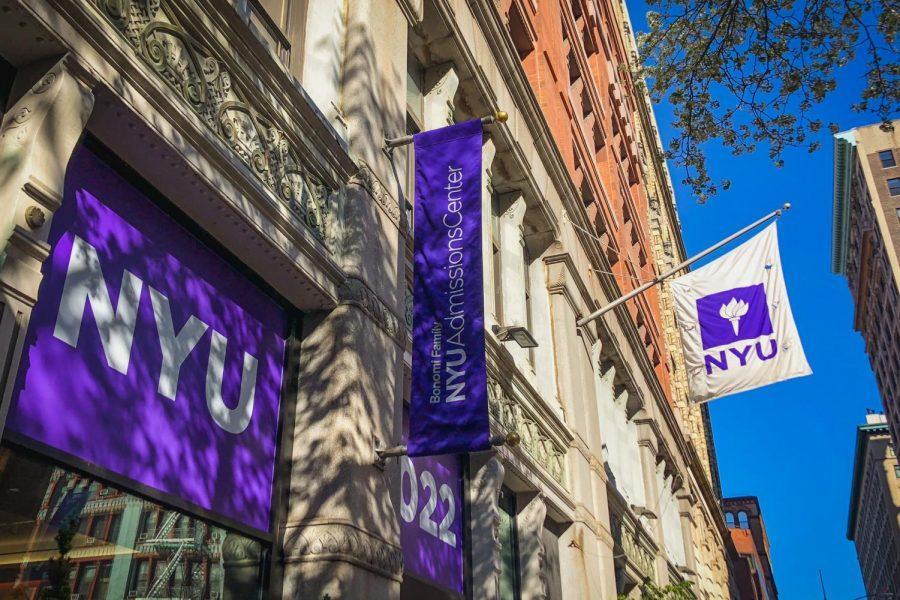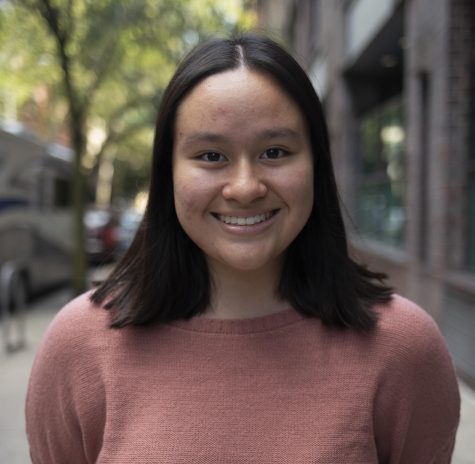College Early Admissions Practices Under Investigation
NYU’s new Admissions Center.
April 30, 2018
Universities and colleges suspected of exchanging information about applicants, a practice that violates antitrust laws, received letters earlier this month as part of the United States Department of Justice investigation into early admissions policies of several higher education institutions. NYU was not included in this investigation.
The letter asked its recipients to preserve communications with other schools regarding the exchange of accepted students’ personal information as well as subsequent decisions made in response to such received information.
Students can apply to multiple schools through regular decision and even early action, which is non-binding, but the Common App does not allow them to apply early decision to more than one school. Those who are accepted through early decision are expected to withdraw their applications to other educational institutions. For NYU in particular, these students must do so within 25 days of receiving their offer of admission.
The universities and colleges supposedly share information to cross-check that students really do cancel those other applications, according to The Chronicle of Higher Education.
“NYU is not among the schools contacted by the Justice Department,” NYU Director of Executive Communications Shonna Keogan wrote in an email to WSN. “In terms of financial aid, we use exactly the same policies for structuring packages for early decision acceptances as we do for those accepted in the regular decision process. And, while the early decision program generally requires admitted students to withdraw applications to other universities and commit to NYU, the key exception to that rule is if a student feels his or her financial aid package is insufficient. Simply put, students admitted through Early Decision who believe they cannot afford NYU are not bound by Early Decision.”
NYU’s admission rate was approximately 28 percent for the entire class of 2021, while its admission rate for Early Decision applicants of the class was approximately 38 percent. This 10 percent difference grew from just one percent in 2014, according to the NYU Admissions Blog. The blog also states that Early Decision applicants can turn down offers of admission to NYU if they were not accepted into the specific campus, program, school or college in which they expressed interest in their Common App.
Students who apply early decision are required to have a parent and school counselor complete the Common App Early Decision Agreement.
“If you are an Early Decision candidate and are seeking financial aid, you need not withdraw other applications until you have received notification about financial aid from the admitting Early Decision institution,” the agreement reads.
Students cannot compare financial aid packages across universities if they apply through early decision.
For Priya Tharwala, a current senior at Flower Mound High School in Texas, finding out that she was accepted to NYU under Early Decision II was a dream. But the financial aid package she received on the same day was a different story.
“When I got the $1,000, there was no debate,” Tharwala said. “I was just not going to go to NYU.”
Tharwala applied to NYU under Early Decision II and expected to receive between $25,000 and $30,000 in financial aid based on online financial aid calculators. NYU initially offered her a meager $1,000 per year in financial aid. After a persistent back and forth with the university, she was able to raise that number to $11,000 per year — and commit to attend the Stern School of Business in the fall.
Ian Clements, another incoming Stern first-year and a current senior at Vista Murrieta High School in California, also applied Early Decision II to NYU and early action to other schools. Although he is happy with his financial aid package, he is glad the Justice Department is looking into financial aid offers.
“I think that’s really unethical in the sense that, when you’re doing financial aid, it should be based off merit and need,” Clements said. “I think when a student applies early decision, it’s normally because that is their number one school, so I think to use that leverage and to have people have to pay more money than they really should’ve is pretty messed up.”
The government’s concern over universities sharing applicants’ information in the admissions process may be new, but universities have long gained access to students’ information even before the application process.
“NYU, like virtually all colleges and universities, purchases the names and contact information of all students (not just international) who have strong test scores and who ask to have colleges and universities contact them with more information,” Assistant Vice President and Dean of Admissions Shawn Abbott said in an email to WSN.
The Common App did not respond to a request for comment.
A version of this article appeared in the Monday, April 30 print edition. Email Sarah Jackson at [email protected].
























































































































































